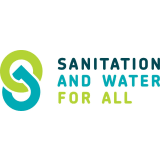
Created in 2010, SWA is a partnership of governments and their development partners, including civil society, the private sector, donors, UN agencies and research and learning institutions. They share the belief that government-led, collaborative, and multi-stakeholder decision-making processes lead to more sustainable, efficient and transparent solutions, than when development partners work alone.
Together, their partners stimulate political dialogue and coordinate and monitor progress towards the sanitation, water and hygiene-related targets of the Sustainable Development Goals (SDGs). Partners also jointly assess and address obstacles to universal access, including through strengthening political prioritization, increasing financing, improving the efficient use of funds, building better governance structures and institutions, creating a healthy enabling environment, building mutual accountability between stakeholders, and improving the use of data to inform decision-making.
Mission
Sanitation, hygiene and water for all, always and everywhere.
Guiding Principles
The SWA partnership was established through agreement on a set of core values that would guide it throughout its life, irrespective of changes in its goals, strategies, type of work, or leadership. These Guiding Principles are what bind all partners together, forming the basis of all SWA activities and initiatives, including work around the Building Blocks and the Collaborative Behaviours. To formally become part of SWA, all partner countries and organizations must agree to follow them.
1. Multi-stakeholder efforts
All stakeholders have relevant and complementary contributions to make to help realize the visions of the sector and achieve the SDGs. These include governments, intergovernmental organizations, bilateral and multilateral donors, development banks, civil society organizations, the private sector, and the people using services.
The cross-cutting nature of sanitation and water necessitates effective collaboration, meaningful participation and joint working between these stakeholders.
2. Sustainability of services and actions
The sustainability of services should guide all strategies and actions working to improve access to sanitation and drinking water. Long-term vision and planning, an emphasis on governance, and sustained efforts and actions are required to realize this goal.
3. Leaving no-one behind and minimum standards of coverage, access, use and effectiveness of services
Targeting the unserved and progressively eliminating inequalities, and maintaining existing services should take precedence over improving services for the already served.
Particular support is needed to address those countries and contexts that are most off-track for reaching the SDG targets.
4. Transparency and accountability
Transparency, integrity and accountability should be incorporated in all SWA activities. Prior commitments by donors and countries serve as a strong foundation to increase access to sanitation and drinking water and for improving aid effectiveness.
These commitments must continue to be translated into action and results.
5. Evidence-based decision-making
Knowledge and evidence must be sought and transparently shared to inform policy-making and action at all levels.
6. Human rights to water and sanitation for all
The partnership promotes the realization of the human rights to water and sanitation for all.
7. International collaboration and aid effectiveness
Aid effectiveness commitments must be implemented in line with the Paris Declaration and Accra Agenda for Action commitments.
Moreover, OECD-DAC Principles of Good International Engagement in Fragile States and Situations should guide sector engagement in those contexts.


